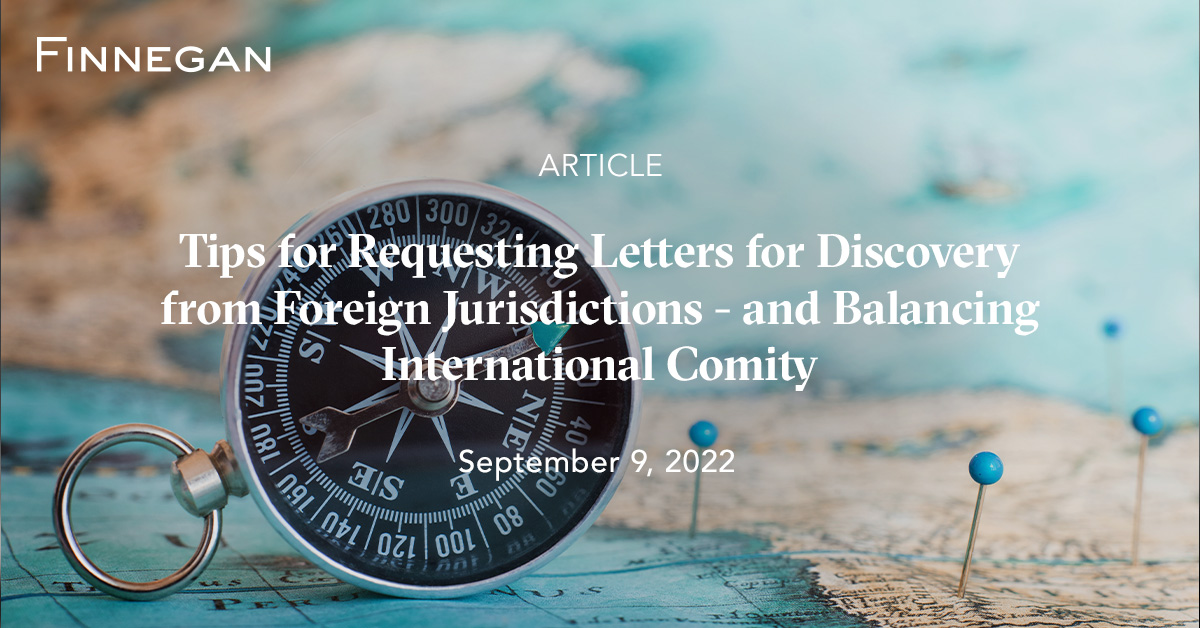How to Effectively Use Letters Rogatory in Cross-Border Legal Situations
Wiki Article
Letters Rogatory Explained: Facilitating Legal Collaboration Between Countries

Interpretation of Letters Rogatory
Letters rogatory are formal demands made by a court in one territory to a court in another jurisdiction, looking for assistance in acquiring evidence or testament for a legal action. This procedural device is necessary in the context of international legislation, where legal systems may differ, and cross-border participation is needed. Letters rogatory assist in the gathering of details that might be essential for settling cases, especially in instances involving complicated transnational issues.Usually, these requests arise in civil, criminal, or administrative matters where a celebration needs evidence that is located outside the territory of the requesting court. The letters function as a way to make sure that the concepts of due procedure are upheld, enabling courts to access evidence that could otherwise stay unattainable because of legal or geographic barriers.
The use of letters rogatory is regulated by global treaties, reciprocal arrangements, or residential legislations, which define the treatments and responsibilities of the courts included. It is very important to note that the execution of such demands is not assured; they rely on the legislations and methods of the jurisdiction receiving the letter. Thus, letters rogatory are a pivotal device for cultivating lawful participation and making certain justice throughout borders.
The Process of Issuing Letters Rogatory
Issuing letters rogatory entails an organized process that guarantees compliance with both worldwide and domestic lawful requirements. The requesting event, normally a court or legal authority, composes an official request describing the nature of the support looked for, the evidence or information needed, and the lawful basis for the request. This paper needs to be specific to promote understanding by the international jurisdiction.
The following action includes transferring the letters rogatory to the assigned foreign authority. This is typically done with diplomatic channels or global lawful help frameworks, guaranteeing that the request is received and recognized by the international court. The foreign court after that refines the demand according to its own legal treatments, inevitably reacting to the requesting event with the desired info or evidence, thus facilitating global legal collaboration.
Value in International Law
The value of letters rogatory in global law can not be overemphasized, as they function as a vital system for judicial cooperation throughout borders. These official requests for aid in lawful matters enable courts in one territory to seek info, proof, or the existence of witnesses from one more territory, thereby helping with the administration of justice in transnational cases.Letters rogatory are specifically essential in the context of globalization, where legal conflicts frequently extend several nations. They enable the collection of proof that may otherwise be hard to reach, guaranteeing that lawful proceedings are notified and fair. By promoting cooperation between judicial systems, letters rogatory assistance copyright the policy of regulation and promote shared regard among nations.
In addition, using letters rogatory shows a dedication to international norms and concepts of cooperation, reflecting the interconnected nature of contemporary lawful practices. It illustrates the value of sticking to established procedures and treaties, such as the Hague Convention, which supplies a structure for these demands - Letters rogatory. Ultimately, letters rogatory improve the effectiveness of lawful procedures, ensuring that justice is not hindered by geographical limits
Difficulties and Limitations
Regardless of their importance, letters rogatory face several challenges and restrictions that can impede their effectiveness. One primary problem is the varying legal frameworks and procedures across jurisdictions, which can cause misconceptions and hold-ups in the implementation of demands. Various nations may have distinctive demands for the credibility of letters rogatory, making complex the procedure additionally.Furthermore, the typically drawn-out nature of global lawful participation can prevent prompt accessibility to proof or witnesses. This delay may negatively affect lawful process or recurring examinations, particularly in situations needing urgent action. Moreover, the absence of sources and training in some territories can lead to insufficient handling of requests, bring about insufficient or insufficient responses.
Social distinctions and varying attitudes you can look here in the direction of legal processes can additionally present significant obstacles. Countries with less official lawful systems may battle to conform with the step-by-step rigor anticipated in letters rogatory. Political tensions in between nations can affect the willingness to execute demands, resulting in a lack of participation and reducing the energy of this system in global law. These obstacles necessitate constant discussion and reform to enhance the effectiveness of letters rogatory in lawful collaboration.
Study and Instances

Alternatively, obstacles can occur, as seen in find more information a situation entailing a European country looking for proof in an ongoing criminal matter from a non-EU country - Letters rogatory. The procedure was postponed as a result of administrative difficulties and differing legal criteria, inevitably impeding the examination
These examples illustrate that while letters rogatory can facilitate global teamwork and expedite legal process, they likewise highlight the demand for clear communication and understanding of legal frameworks between countries. Such instance research studies underscore the importance of refining this tool to improve effectiveness and effectiveness in international legal issues.
Verdict
In recap, letters rogatory serve as a crucial mechanism for promoting lawful cooperation in between nations, ensuring the collection of proof and statement throughout jurisdictions. Their significance in international regulation can not be overstated, as they promote due process and enhance the efficiency of cross-border lawful proceedings.Letters rogatory are official demands made by a court in one jurisdiction to a court in another jurisdiction, looking for aid in acquiring evidence or testimony for a lawful proceeding. The requesting event, typically a court or lawful authority, prepares an official request describing the nature of the aid looked for, the proof or information needed, and the legal basis for the request. The foreign court after that refines the request according to its very own legal procedures, eventually reacting to the requesting event with the sought-after info or evidence, therefore assisting in worldwide legal participation.
Furthermore, the usage of letters rogatory shows a commitment to global norms and principles of collaboration, reflecting the interconnected nature of modern-day additional reading lawful techniques.International legal collaboration via letters rogatory is not without its real-world implications, as illustrated by different case researches that highlight both successes and challenges.
Report this wiki page